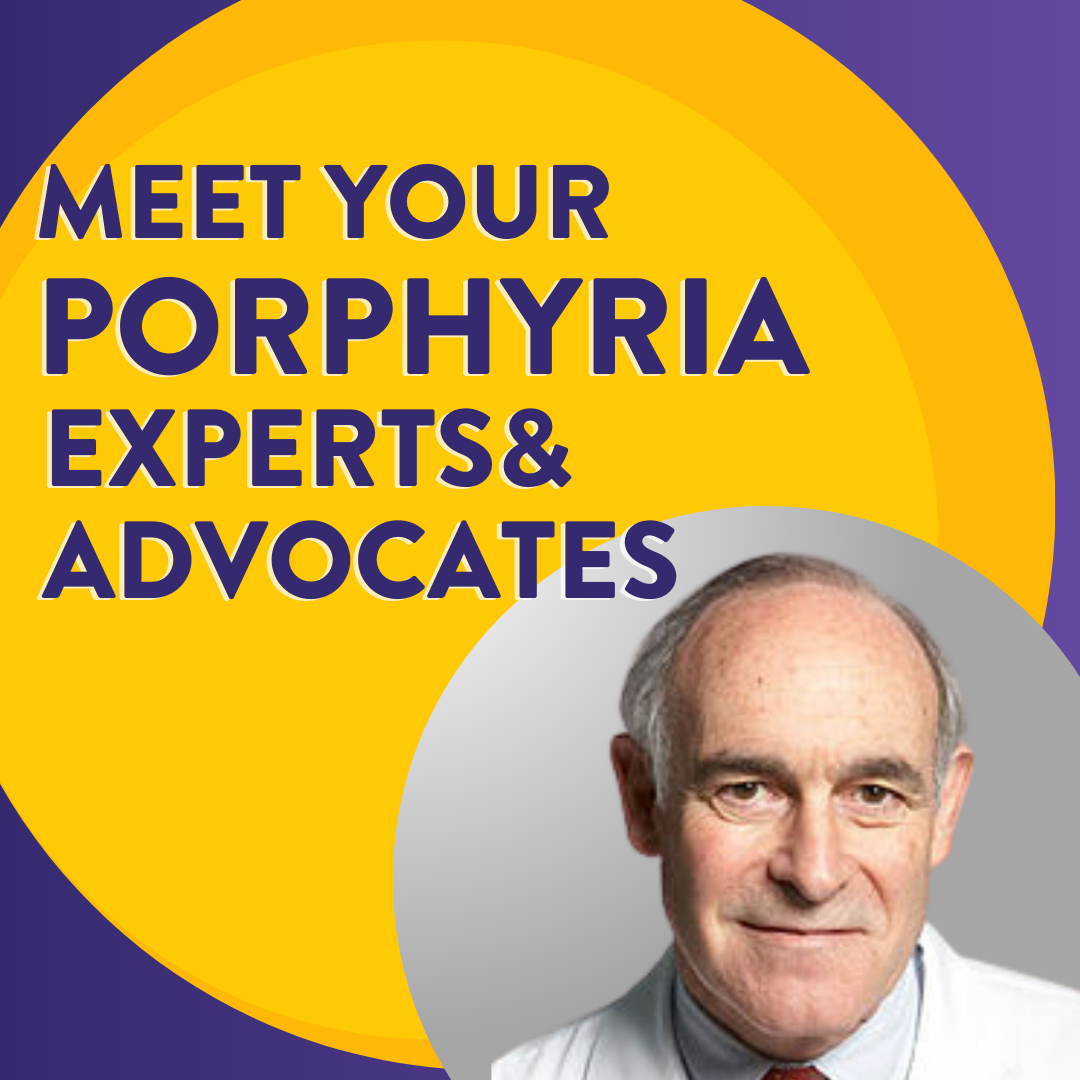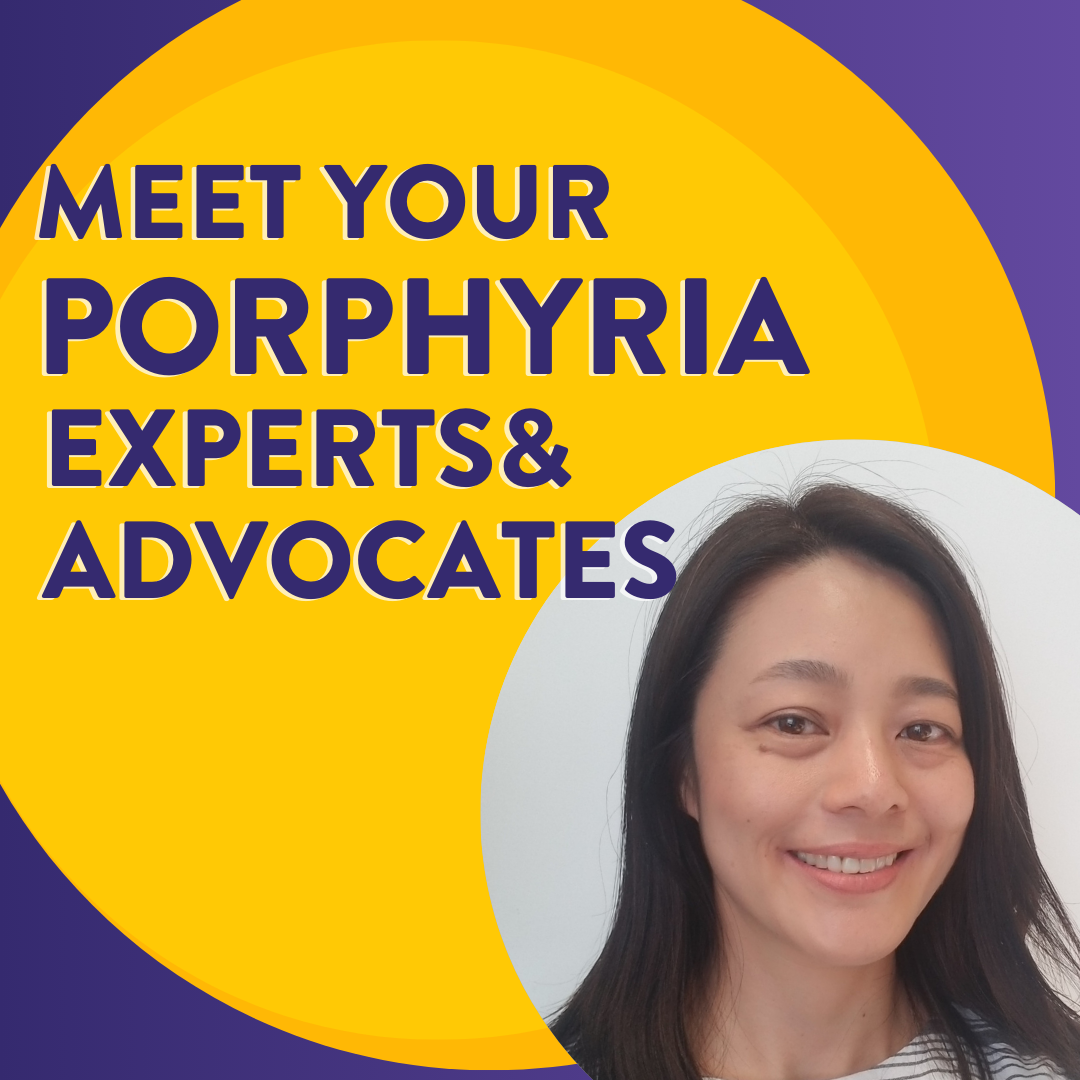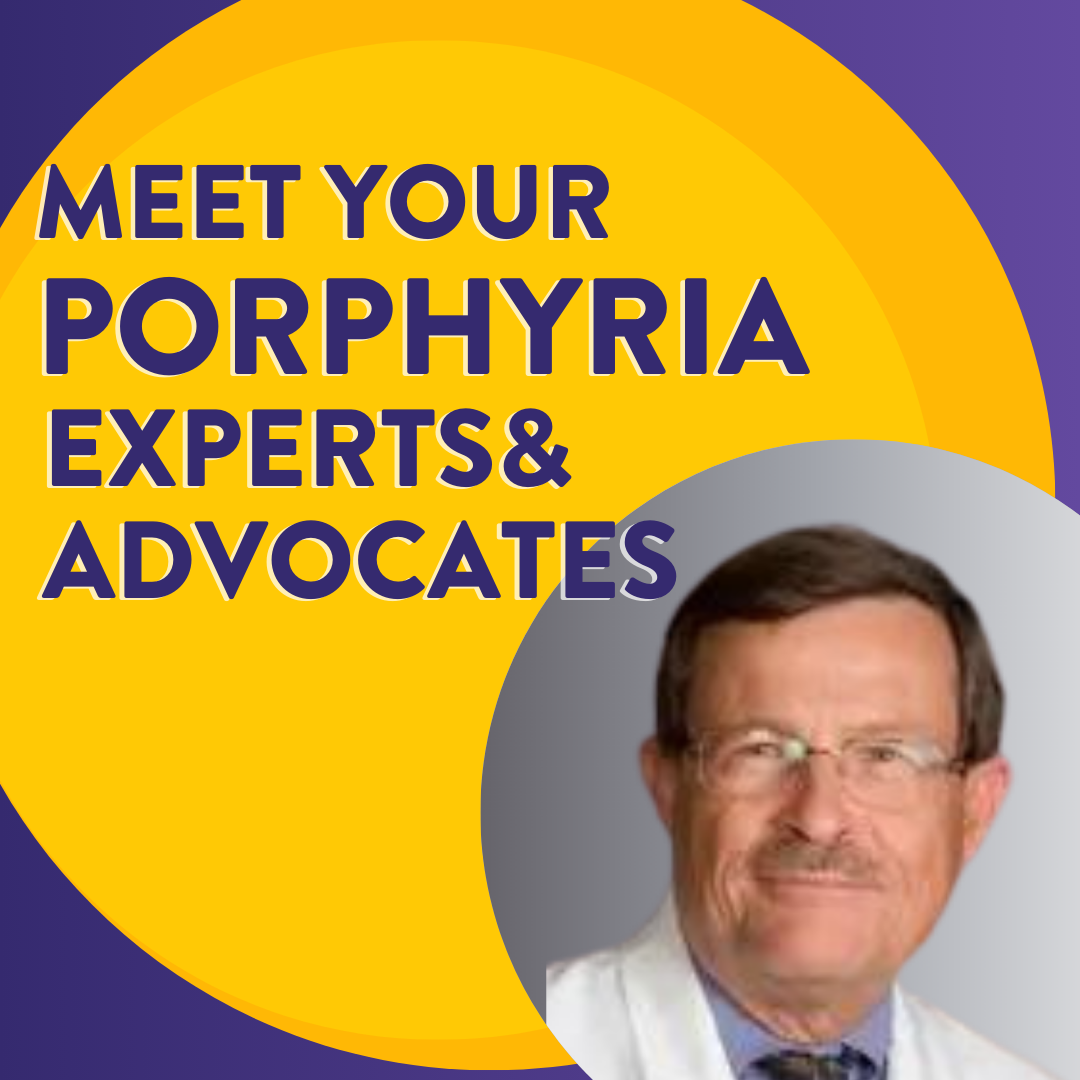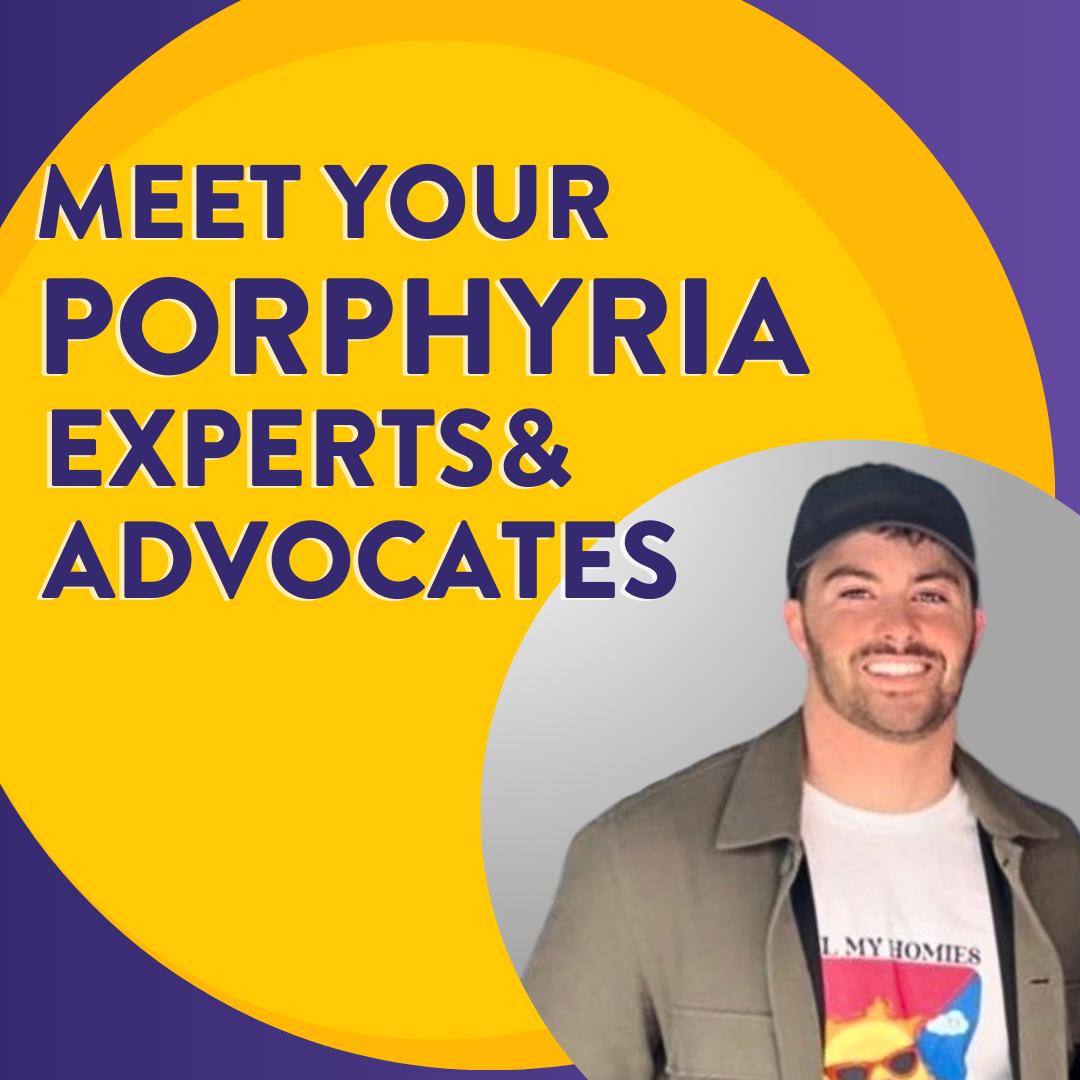Meet Dr. Amy Dickey
The porphyria community is lucky to be supported by dedicated physicians, researchers and advocates who work tirelessly to improve care and development new treatments for porphyria. The United Porphyrias Association is pleased to introduce you to some of them!
My connection to porphyria is a bit more personal than a lot of other researchers.
I have EPP.
-Dr. Amy Dickey
Can you tell us a bit about yourself and your connection to porphyria?
My connection to porphyria is a bit more personal than a lot of other researchers. I have EPP porphyria. I started to have symptoms at age two or three and I was diagnosed at age 13. My brother also has EPP. Even before it was diagnosed, it was a big part of my life.
I went into medical school with the idea that I might want to do research on porphyria. But in the context of medical training, EPP felt too personal for me, so I veered into other research areas. I did an internal medicine residency and basic science research on HIV and TB. After I finished my training, I realized that there was a really big need for people to do research and advocacy for porphyria and for clinicians to see patients with porphyria.
I have a porphyria clinic at Massachusetts General Hospital that I co-direct with Rebecca Karp, who is a hematologist. About once a month we see patients with all types of porphyria. I also see ICU patients for four weeks a year, and then all the rest is research.
I have a variety of porphyria-related research studies, including clinical trials in EPP and registry studies for all different types of porphyria, including surveys, collecting patient samples and data, and following patients over time. Currently, two of my big research projects are looking at how to measure light sensitivity in porphyria and understanding the reasons for differences in light sensitivity in EPP through looking at patients’ genetics.
You mentioned that you really saw a need for more research for porphyria. Can you tell us a bit more about what you see as being the big research needs for porphyria?
There are a lot of needs for research in porphyria. Because I have EPP, the needs and missing parts of research are easier for me to notice in EPP, but the needs are there for all types of porphyria.
One unmet need that I see for EPP is that there are drug companies working on therapies to prevent light sensitivity, but there are no therapies available to treat EPP-related pain once it starts. It’s also difficult sometimes for people to predict when their symptoms will start, so I’m working on a device to help measure light sensitivity over time to help prevent symptoms. This device could also measure light sensitivity in clinical trials. That’s another unmet need.
It’s a big question why some patients are more severe than others. I’m doing work within EPP to understand why, but it’s a question with all types of porphyria. With acute porphyria, some people will be mild, and some don’t ever have symptoms even though they have the mutation.
I also see a need for a better understanding of the prevalence and underdiagnosis of porphyria. Of course, because it's a rare disease, we don't have very good numbers on how many patients there are and it's probably far underdiagnosed. Having a better understanding of the numbers and if it’s underdiagnosed would help increase efforts to diagnose patients with all types of porphyria, encourage pharmaceutical companies to put more funding into treatments, and connect more patients with treatments that are already available.
Has having EPP shaped how you approach your clinic? Has it impacted how you interact with your patients?
Yes, it does. At the clinic, I see a lot of patients with all types of porphyria, especially EPP. It's always very meaningful for me to meet others with EPP because it's a rare disease and so there are very few people who understand what it's like. Anyone else with EPP automatically feels like family to me. I feel a connection with the other types of porphyria as well, especially because of the rare disease experience.
We also see people who are not diagnosed with porphyria coming in to get a diagnosis. Sometimes those are the most challenging patients because they may not have porphyria, but they certainly have something. We may not be able to give an answer for some of those patients. I went through a long period undiagnosed as well and I try to walk with patients on a part of that journey, even if I can’t give people the answer.
Are there any avenues of research or future directions that you're excited about?
Yes! I’m excited about the projects I mentioned earlier to understand the differences in severity between people with EPP and get a better understanding of treating EPP pain.
I also have a project that is currently underway for AIP. We have a large dataset of patients who have been to MGH and we have genetic sequences for a lot of them. We’re able to identify people with an AIP mutation and then look at their chart to see if it seems like they have AIP. It could really help us understand the penetrance and under diagnosis of AIP.
There are clinical trials for EPP that I’m excited about right now, including the prospect of a medication to decrease protoporphyrin and improve light sensitivity for EPP.
Dr. Dickey is a member of UPA’s Scientific Advisory Board and an investigator for the NIH supported Rare Diseases Clinical Research Network’s Porphyrias Consortium.









